Tag: fabrication
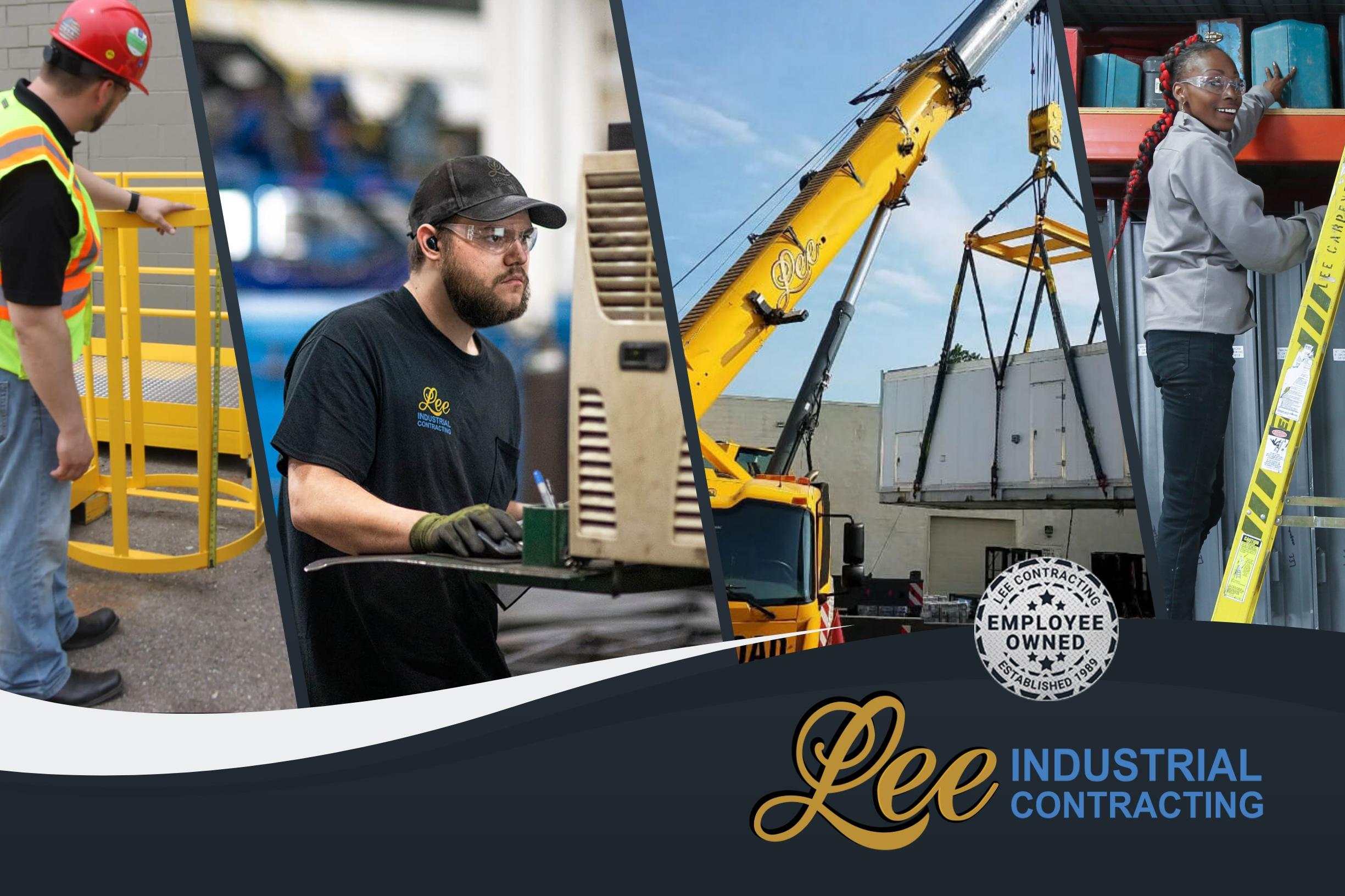
Curious about what sets Lee Contracting apart from the rest? There’s one word our team lives and breathes on a daily basis: Excellence. For some, it may be a term marketers use, but at Lee Contracting, it’s in our DNA. Let’s have a look at some of the ways we exemplify excellence, whether in the office or on the job site.
The Power of One
What is the “Power of One?” It’s all the benefits our customers and our team get from working with a single source that provides a complete range of industrial contracting services. Instead of having to go to multiple contractors for individual services, Lee Contracting delivers them all in-house with our highly specialized experts, and never uses subcontractors.
- Electrical
- Pipefitting & Mechanical
- Foundations
- Rigging
- Fabrication
- Maintenance & Repair
- Fire Protection
- Building
No other industrial contracting company in the Midwest can say the same.
Turnkey
How does the Power of One benefit you? The answer lies in our unique ability to deliver truly turnkey services.
First, you only have to work with one contact, which makes your life far less complicated than when dealing with multiple vendors. Beyond streamlined project coordination, communication is also turnkey. Have you ever worked with several different vendors and felt like the right hand didn’t know what the left hand was doing? Leveraging the Power of One, our team communicates seamlessly to make sure every project runs smoothly. It also helps streamline scheduling, since we know exactly what our teams are working on at all times, and don’t have to juggle timetables with other vendors.
All this leads to faster turnaround times, greater cost efficiency and fewer hiccups along the way.
Employee-owned
As a 100 percent employee-owned business, Lee Contracting has a leg up when it comes to excellence in industrial contracting services. Since our employees have a stake in the company, they have a vested interest in delivering excellence with every project. When the business succeeds, they succeed. Ownership also imparts a feeling of pride in a job well done. Our team isn’t just performing a job – they are actively contributing to the success and reputation of the company they own.
Team
Because our employees are also owners, we are highly selective about who we invite to join our team. We look not just at technical industrial contracting skills, but also for intrinsic qualities like enthusiasm, dedication and a willingness to learn and grow. Here at Lee Contracting, we cross-train employees so crew members are adept in multiple specialties, which not only balances the load but gives team members a chance to experience many different aspects of industrial contracting.
We make sure our team members are thoroughly trained and have the appropriate certifications needed for their respective trades. In addition, we promote from within, rewarding excellence with new, exciting opportunities.
Equipment
A top-tier team needs top-tier equipment to perform with excellence. With every piece of equipment owned in-house, Lee Contracting only invests in best-in-class, pro-grade tools and machinery that have been proven in the toughest industrial settings. Keeping an eye on durability and reliability, our team is equipped with the best, ensuring optimal performance and safety on every project.
Not only do we buy the best, we maintain our equipment meticulously with regular inspections and cleaning to uphold our high standards. This stringent upkeep not only keeps our fleet in tip-top condition, it allows us to control costs and pass the savings on to our clients.
Safety
Protecting our employees and our clients is not just a box we check. Safety is prioritized and ingrained in everything we do, reflecting our commitment to excellence. Our Safety Team consists of certified OSHA Outreach Trainers, empowering us to conduct the majority of our safety training internally. All new employees receive OSHA 10 training in addition to complementary safety training. Our Safety Team, which oversees safety on every job, we have an internal Safety Committee made up of team members from various departments who can weigh in from different perspectives.
It’s this proactive approach to safety that keeps Lee Contracting at the forefront of industry standards and ensures our team members return home safely at the end of each day, ready to tackle new challenges with confidence and peace of mind.
Need a team that can bring excellence to your next industrial contracting project? Contact us to request a quote today.
Subscribe and receive updates via email
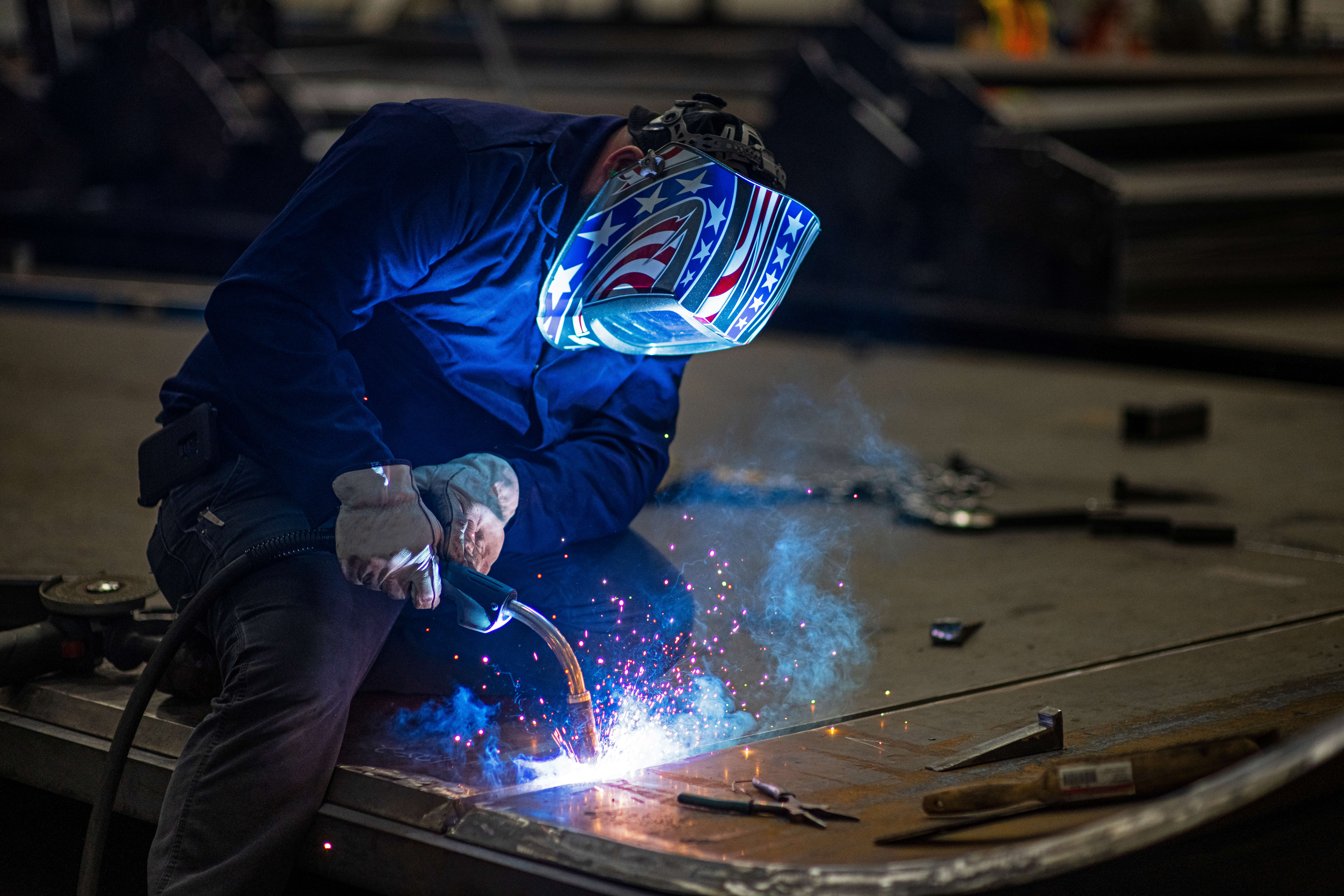
Do you like to problem solve? How about creating things from scratch? If so, have you ever considered a career in industrial fabrication? Let’s take a closer look at some frequently asked questions to discover what it takes to be a fabricator at Lee Contracting.
1. How can I become a fabricator? After you earn a high school diploma, or equivalent:
- You can apply for a fabricator apprentice opening at Lee, where workers will receive on-the-job training.
- Some aspiring fabricators choose to self-educate by taking classes such as Blueprint Reading for Welders (https://www.vdci.edu/blueprint-reading-bundle), or other welding courses to learn the trade before beginning full-time. Please note: this is not a requirement to begin your career as a fabricator at Lee.
- Many people start out in one of Lee’s 13 different in-house trades and wish to learn the art of welding. We are committed to providing team members opportunities for growth, and employees can be transferred into the fabrication department to give them the opportunity to learn a new skill.
- If you have a passion for making things, as well as a good work ethic, that’s all that’s needed to be a successful welder at Lee.
2. What certifications are required? Lee does not require any certifications to become a fabricator. However, having more welding certifications may allow you to stand out as a more valuable employee.
3. What types of projects do industrial fabricators work on? One of the best parts about working at Lee is the diversity of projects. Some other fabricators specialize in certain industries (aerospace, structural steel, machine building, etc.), and others specialize in working with a specific material (mild steel, stainless steel, aluminum, heavy plate, etc.). However, our fabricators do it all!
4. What are the different types of industrial fabrication jobs at Lee? In Lee’s weld/fab department, there are a variety of roles. We have equipment operators, fabricator apprentices, fabricators, fabricator foreman and install foreman. Even some of our former fabricators have grown in the company to become estimators, who play a crucial role in our new business process.
5. How can a welder stay safe on the job? Safety is a top priority at Lee. The first step in any fabrication project is to identify potential hazards and working toward eliminating or minimizing those risks before starting production. We also require our fabricators to wear all of the necessary Personal Protective Equipment and Clothing (PPE) to keep safe on the job.
6. What is it like working as a fabricator at Lee? A fabricator at Lee can expect to be challenged daily, with the intent to grow and expand their craft. Lee is one of the best places to be a fabricator due to the diversity of the work; you never know what you may be building next! At the end of the day, being a fabricator at Lee is challenging, yet fun and rewarding.
Interested in a career at Lee? Learn more about what it’s like to work at Lee and view our current job openings here: https://www.leecontracting.com/careers/
Subscribe and receive updates via email
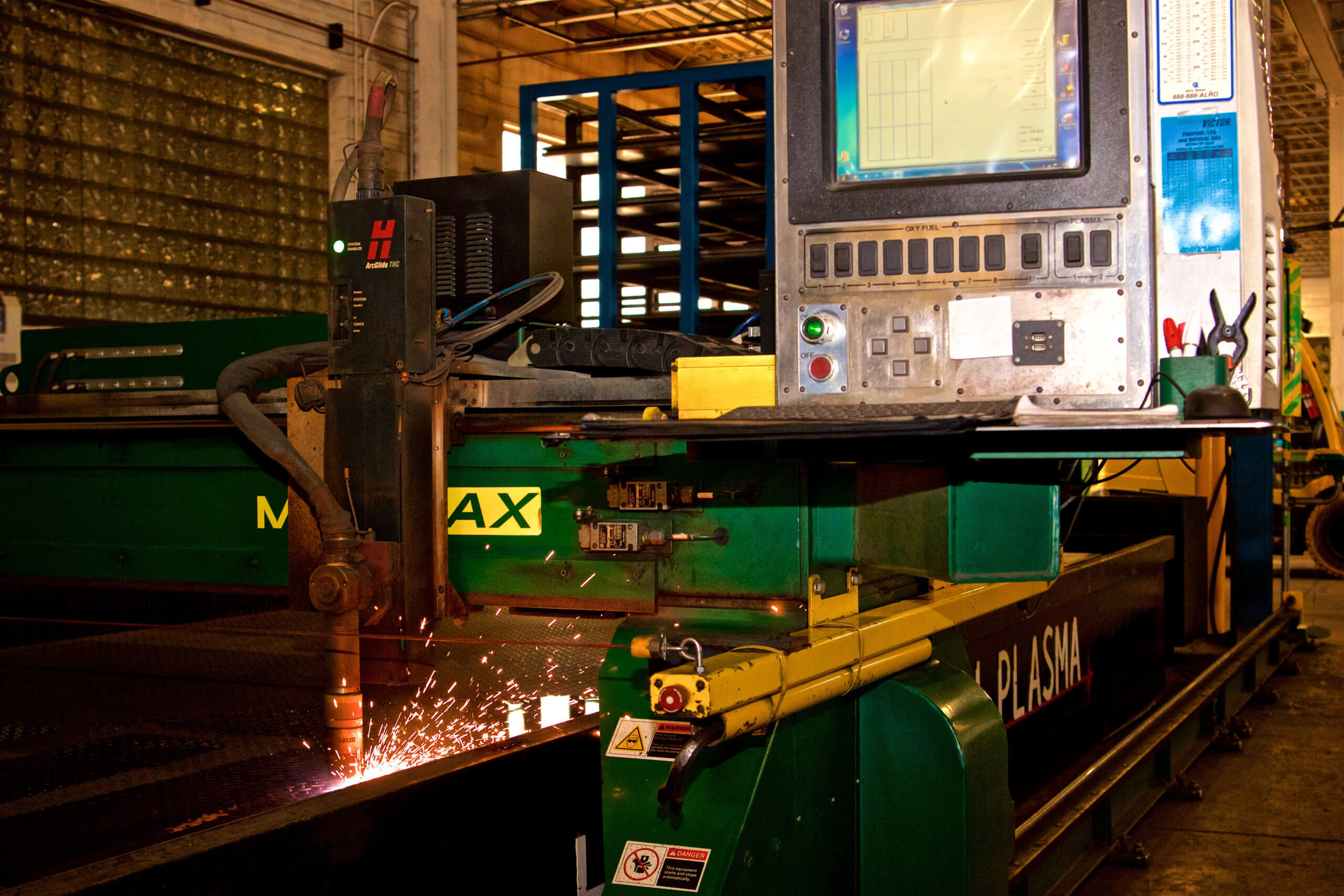
A career in metal fabrication is lucrative, rewarding and exciting. The benefits to this growing field include steady employment, solid income potential and the opportunity to work on a wide variety of projects.
Career Outlook
The U.S. Bureau of Labor Statistics reported that fabricator employment rose 2% from 2017 to 2018. The average hourly wage of $20.02 per hour and a mean annual wage of $41,640 makes a career in fabrication an excellent choice. Fabricator jobs account for 1.8 million in today’s workforce. If you are a fabricator, you can find employment in several different industries. These include industrial; transportation, shipping, motor vehicle, body and trailer manufacturing, engines and turbines, aerospace and rail transportation.
What do Fabricators do?
Most metal fabricators work for a fabrication company or in a manufacturing plant. Metal fabricators utilize raw metals and machinery to fabricate, position, align and fit metal products for a large variety of products and industries.
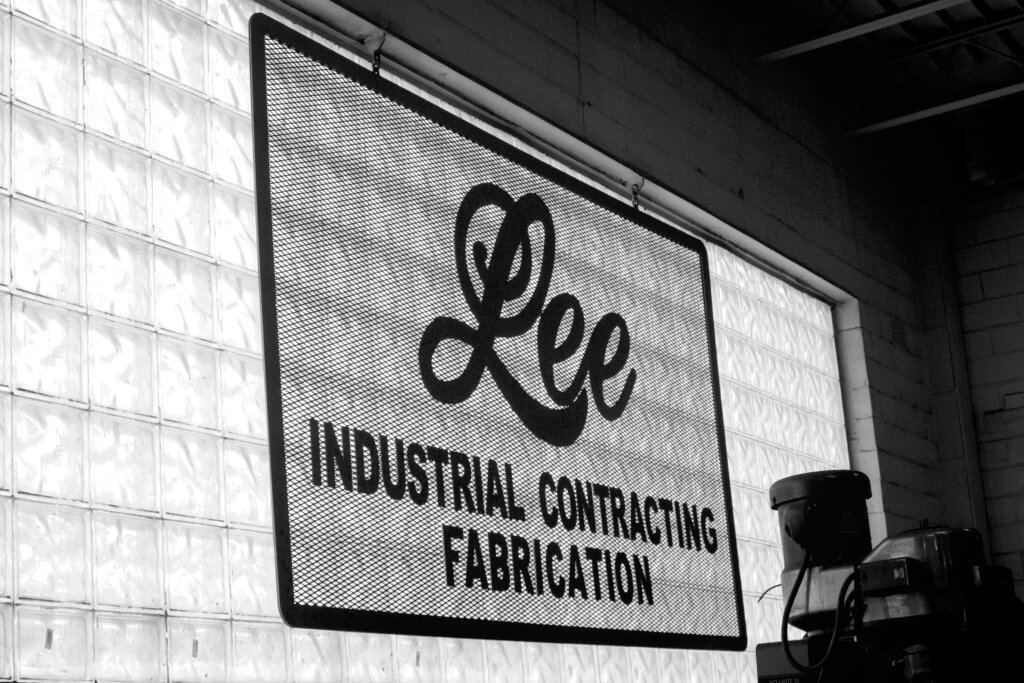
Skills and Training
Typically, the minimum education for a fabricator requires a high school diploma followed by technical training. The technical training will include hands-on learning of fabrication fundamentals including; safety, blueprint reading, math, MIG/TIG/stick welding, sheet metal fabrication, part constructing/forming and project building. These skills and theories of metal fabrication are critical to success in the field. A great training program will provide education and hands-on training using state-of-the-art equipment.
Our People
Lee Contracting employs an unparalleled staff of skilled craftsmen and state-of-the-art equipment to best serve our customers. Our experienced fabrication crews work closely with our other in-house departments to create high-quality work that delivers.
You can view and apply for our current job openings here. We are a 100% employee owned company offering great benefits including 401k, health insurance and paid vacation.
Call us today to receive your free quote (888) 833-8776 or visit our website.
Subscribe and receive updates via email
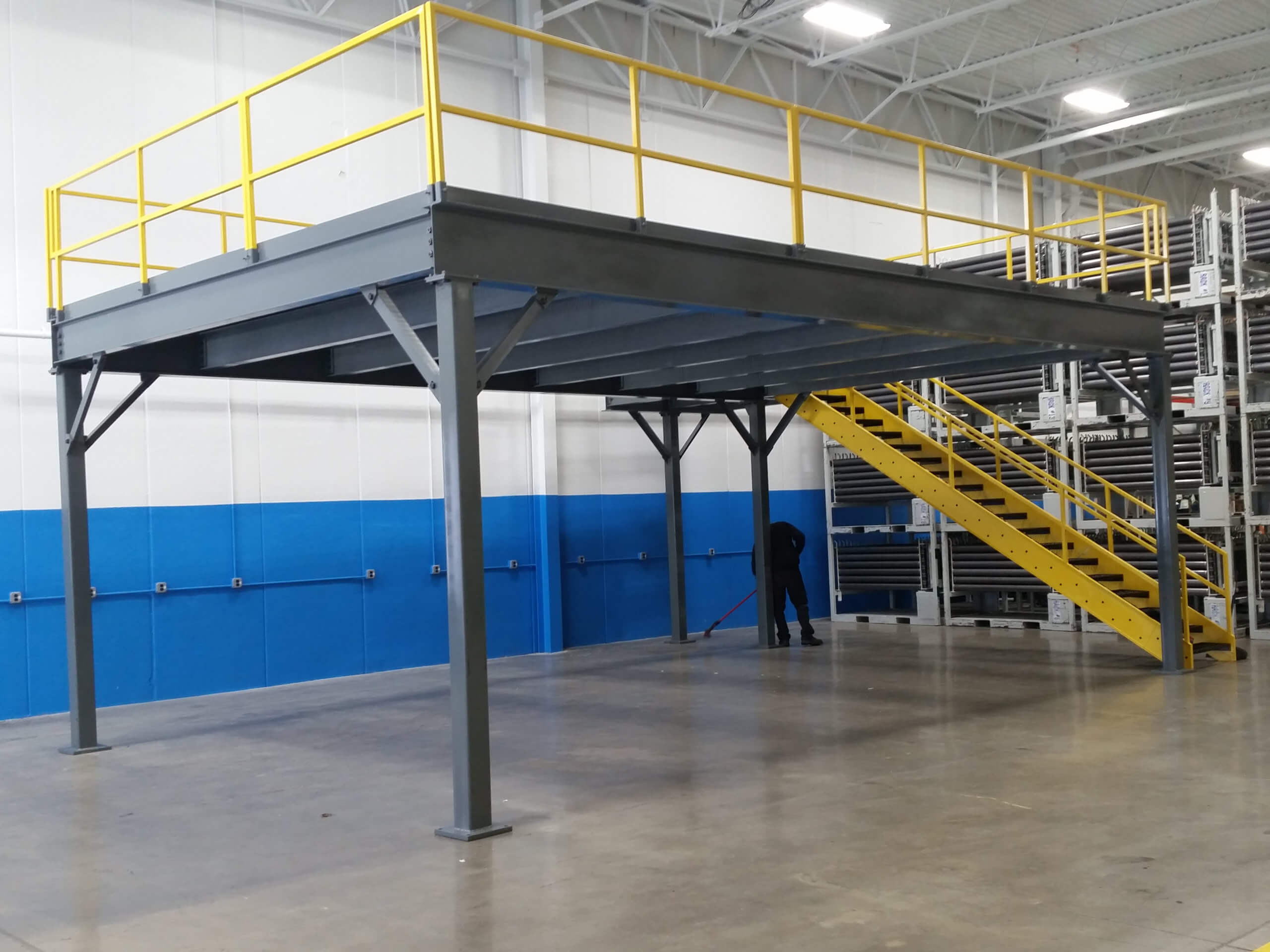
The metal fabrication industry has broad applications across many industries. The process of metal fabrication includes the building of machines and structures from raw metal materials. Standard raw materials used include plate metal, fittings, castings, formed and expanded metal, sectional metal, flat metal and welding wire. These processes include cutting, burning, welding, machining, forming and assembly to create the final product.
Lee Contracting has a state-of-the-art in-house fabrication shop with full capabilities. Our expert fabricators handle custom design and installation of everything from stairs and mezzanines to pump skids and structural steel layouts.
Lee Contracting fabrication department benefits:
- Custom 2D and 3D design with in-house engineering
- On-site design staff, from small weldments to large structures
- Structural engineers stamp and certify all structures and designs
- Utilizing the latest versions of AutoCAD and SOLIDWORKS
- AWS D1.1-certified welders in multiple positions and processes
- Fully equipped welding and fabrication rigs with 24-hour service
- Experienced with carbon steel, stainless and aluminum
- Full machining capabilities
- Final paint completed in-house or onsite
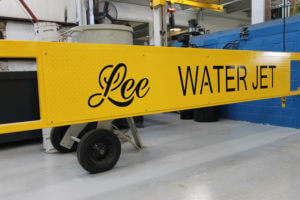 Utilizing our extensive list of fabrication equipment, Lee Contracting can complete all your fabrication needs. Our in-house fabrication equipment includes:
Utilizing our extensive list of fabrication equipment, Lee Contracting can complete all your fabrication needs. Our in-house fabrication equipment includes:
- HyDefinition Plasma Machine (1 ½” thick pierce and 2 ½” thick edge cutting capabilities)
- OMAX waterjet cutting machine
- Baileigh tube bender
- Oxyfuel up to 6” cutting capabilities
- 12’ Press Brake
- 12’ Shears to ½” thick
- Ironworker/Punch Press
- MIG, TIG, ARC
- Automated Band Saws
Visit our website to learn more about our fabrication & turn-key solutions to complete your job safely.
Call us to learn about our turn-key services and receive your free quote today, (888) 833-8776.
Subscribe and receive updates via email
A career in metal fabrication is a rewarding, exciting and lucrative one. The benefits to this growing field include steady employment, solid income potential, and the opportunity to work on a wide variety of projects.
Career Outlook
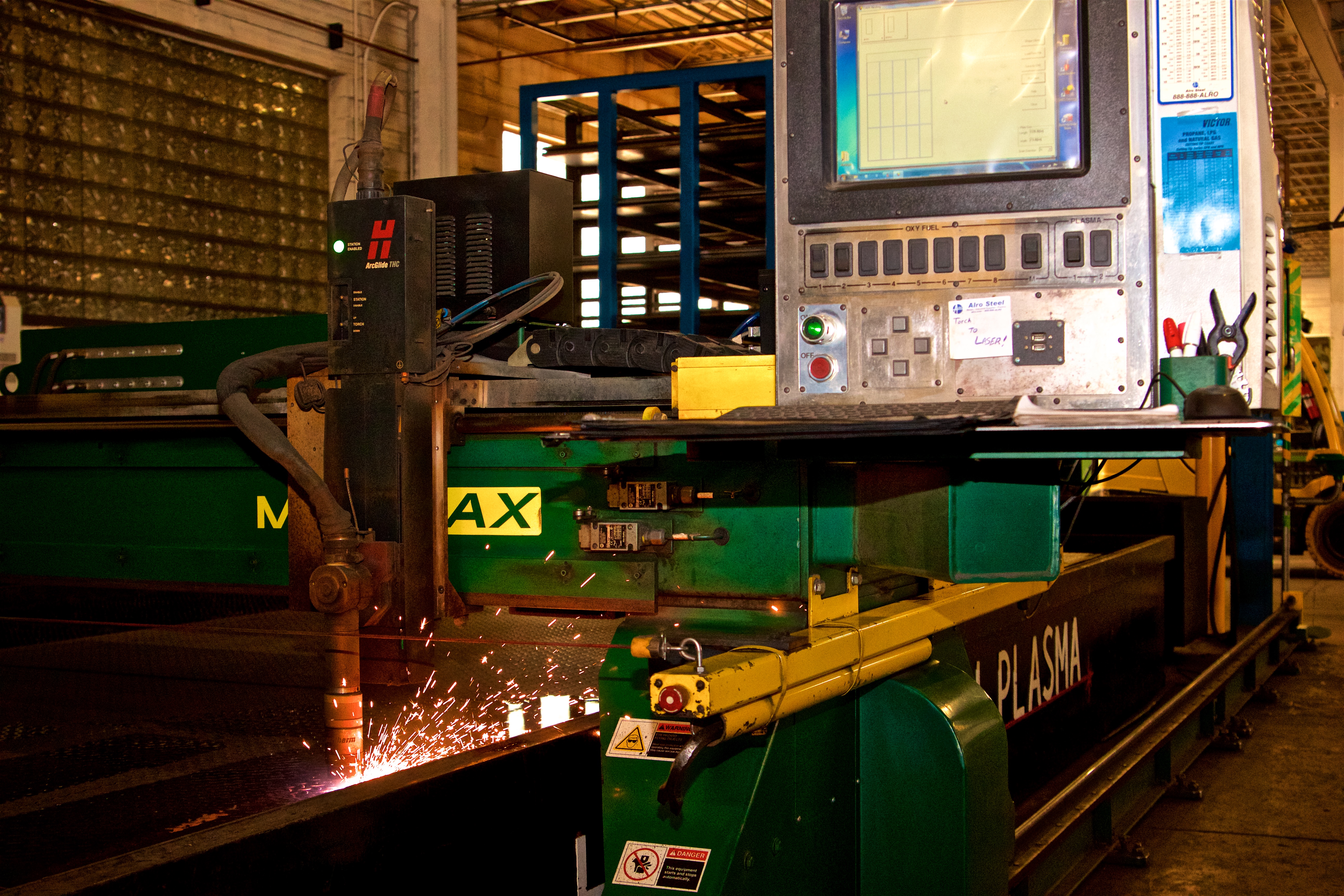 The U.S. Bureau of Labor Statistics reported that fabricator employment rose 2.3% in 2016. The average hourly wage of $19.23 per hour and a mean annual wage of $40,000 makes a career in fabrication an excellent choice. Fabricator jobs account for 1.8 million in today’s workforce. If you are a fabricator, you can find employment in several different industries. These include: industrial, transportation, shipping, motor vehicle, body and trailer manufacturing, engines and turbines, aerospace and rail transportation.
The U.S. Bureau of Labor Statistics reported that fabricator employment rose 2.3% in 2016. The average hourly wage of $19.23 per hour and a mean annual wage of $40,000 makes a career in fabrication an excellent choice. Fabricator jobs account for 1.8 million in today’s workforce. If you are a fabricator, you can find employment in several different industries. These include: industrial, transportation, shipping, motor vehicle, body and trailer manufacturing, engines and turbines, aerospace and rail transportation.
What do Fabricators do?
Most metal fabricators work for a fabrication company or in a manufacturing plant. Metal fabricators utilize raw metals and machinery to fabricate, position, align and fit metal products for a large variety of products and industries.
Skills and Training
Typically, the minimum education for a fabricator requires a high school diploma followed by technical training. The technical training will include hands-on learning of fabrication fundamentals including: safety, blueprint reading, math, MIG/TIG/stick welding, sheet metal fabrication, part constructing/forming and project building. These skills and theories of metal fabrication are critical to success in the field. A great training program will provide education and hands-on training using state-of-the-art equipment.
Our People
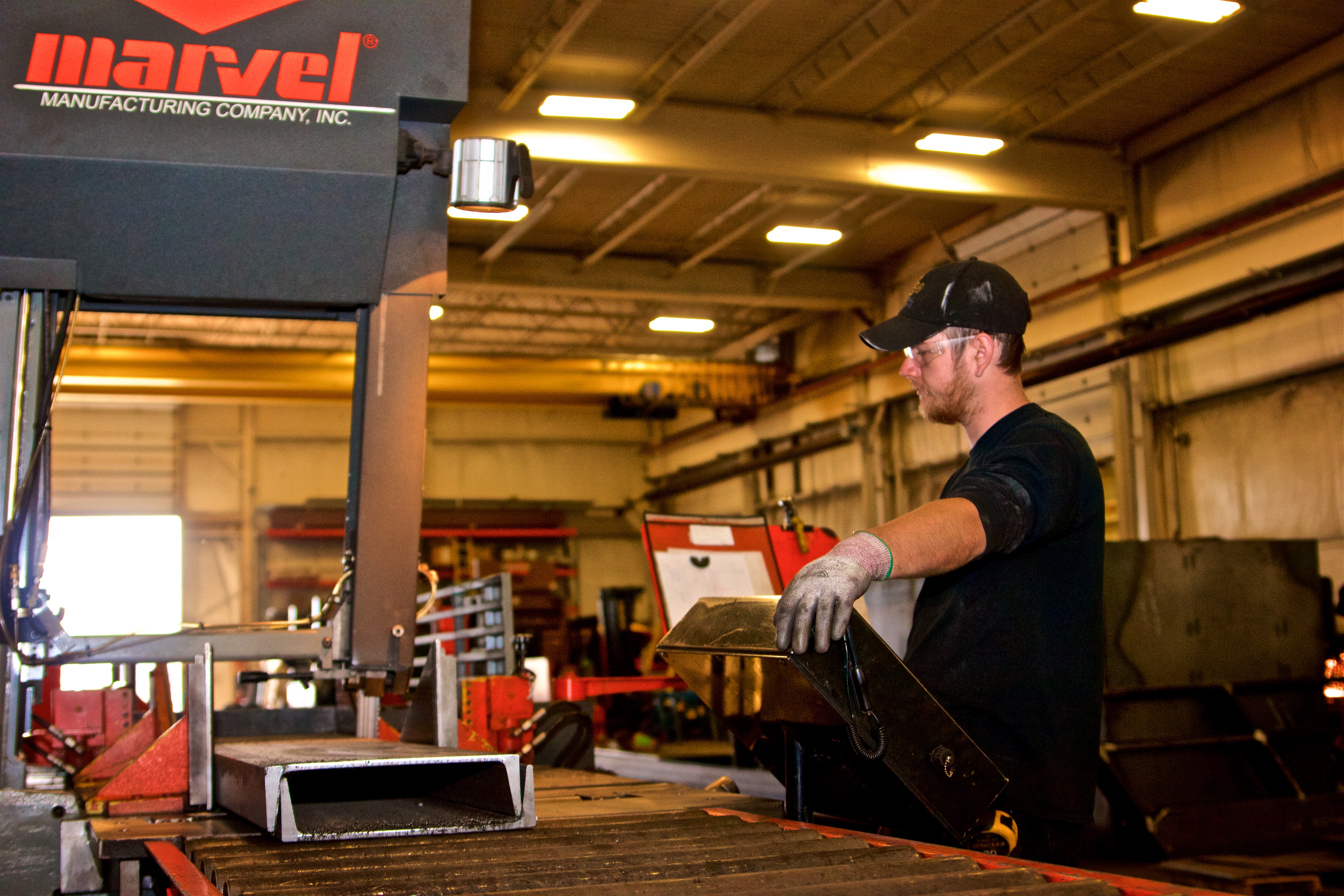
Lee Contracting employs an unparalleled staff of skilled craftsmen and state-of-the-art equipment to best serve our customers. Our experienced fabrication crews work closely with our other in-house departments to create high-quality work that delivers.
You can view and apply for our current job openings here. We are a 100% employee-owned company offering great benefits including 401k, health insurance and paid vacation.
Subscribe and receive updates via email
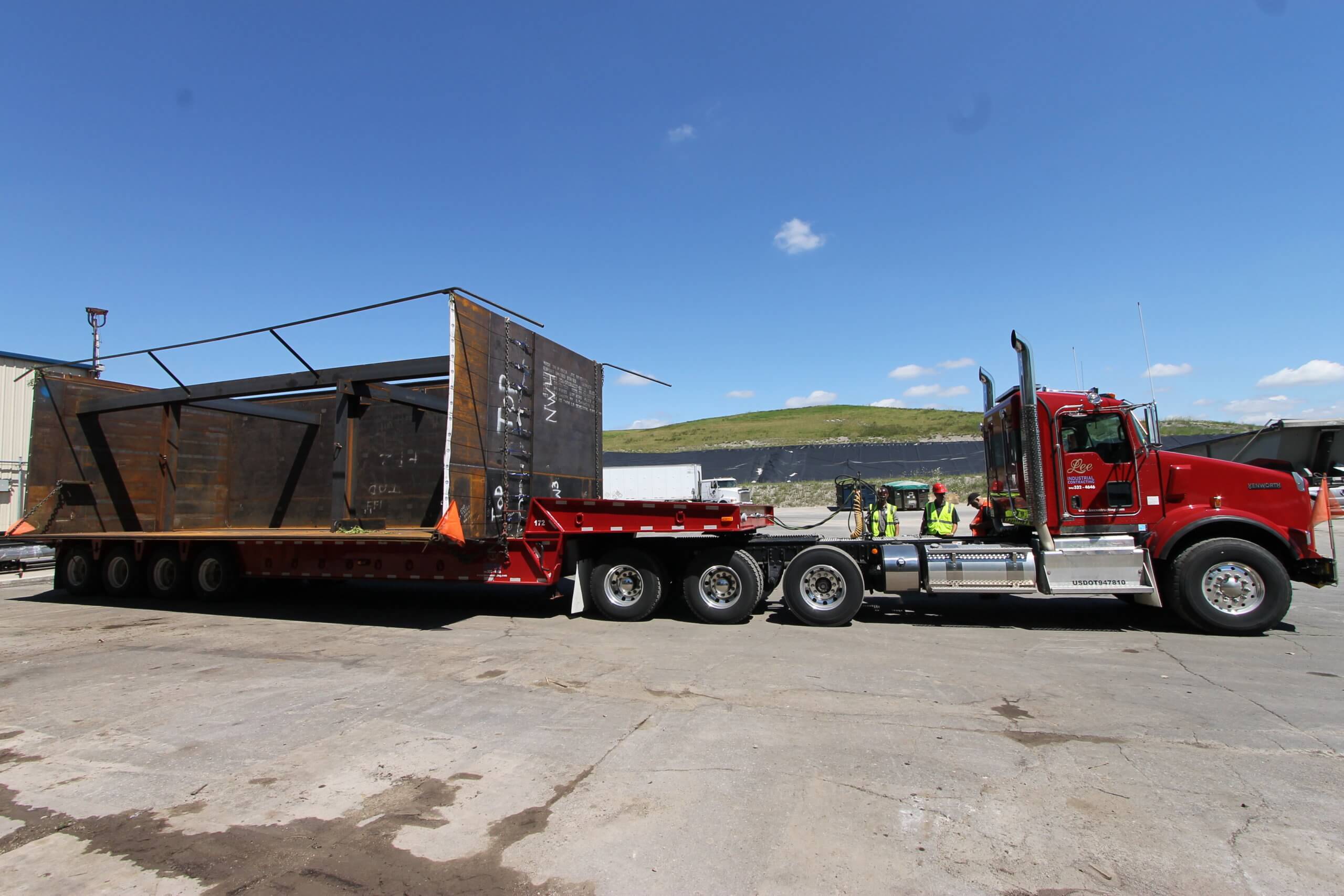
Lee Contracting has a state-of-the-art in-house fabrication shop with full capabilities. Our expert fabricators handle custom design and installation of everything from stairs and mezzanines to pump skids and structural steel layouts. We have structural engineers stamp and certify all structures and designs. We also offer 24-hour welding and fabrication services and full machining capabilities.
Lee’s fabricating teams are routinely exceeding our customer’s expectations. One example of this is when US Ecology was looking to replace seven tanks at their facility in Belleville, MI. Other contractors said it would take 26 weeks to replace one tank. Lee came in and set a very aggressive timeline to replace all seven tanks. We started replacing the tanks two at a time, in a three-week window. All seven tanks were fabricated in our 40,000 square foot in-house fabrication shop. Each tank, which weighed about 150,000 pounds, were then loaded on to one of Lee’s trucks and transported from Pontiac to be installed at the US Ecology facility in Belleville, Michigan.
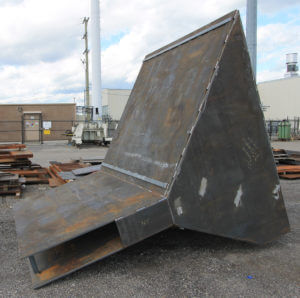
Another example of exceeding our customer’s expectations came when Steel Dynamics needed a liner built for their descaling pit. This liner protects the concrete of the pit from eroding during the descaling process. The liner is approximately 9 ft. x 8 ft. x 10 ft. tall. We only had a small window of time to fabricate the liner and transport it down to the customer’s facility in Indiana. If the timeline was not met, the customer would lose out on valuable production time. We met the customer’s deadlines to ensure they would not lose any production time.
These are just two of our fabrication shop success stories. If you are impressed and want to find out more about how Lee Contracting’s fabrication department can be an asset to your business visit our fabrication page. Or, if you’re ready to request a quote, you can do so here.


